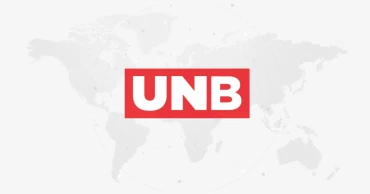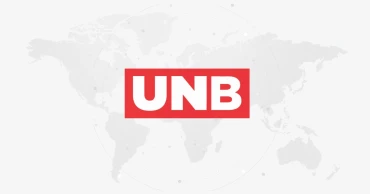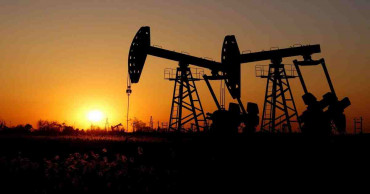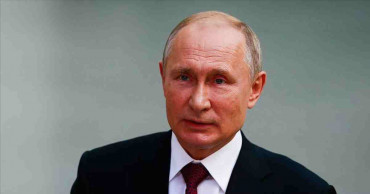OPEC
How the cuts announced by OPEC+ will affect oil prices, inflation
Major oil-producing countries led by Saudi Arabia and Russia have decided to slash the amount of oil they deliver to the global economy.
And the law of supply and demand suggests that can only mean one thing: higher prices are on the way for crude, and for the diesel fuel, gasoline and heating oil that are produced from oil.
The decision by the OPEC+ alliance to cut 2 million barrels a day starting next month comes as the Western allies are trying to cap the oil money flowing into Moscow’s war chest after it invaded Ukraine.
Here is what to know about the OPEC+ decision and what it could mean for the economy and the oil price cap:
WHY IS OPEC+ CUTTING PRODUCTION?
Saudi Arabia’s Energy Minister Abdulaziz bin Salman says that the alliance is being proactive in adjusting supply ahead of a possible downturn in demand because a slowing global economy needs less fuel for travel and industry.
“We are going through a period of diverse uncertainties which could come our way, it’s a brewing cloud,” he said, and OPEC+ sought to remain “ahead of the curve.” He described the group’s role as “a moderating force, to bring about stability.”
Oil prices have fallen after a summer of highs. International benchmark Brent crude is down 24% from mid-June, when it traded at over $123 per barrel. Now it’s at $93.50.
One big reason for the slide is fears that large parts of the global economy are slipping into recession as high energy prices — for oil, natural gas and electricity — drive inflation and rob consumers of spending power.
Another reason: The summer highs came about because of fears that much of Russia’s oil production would be lost to the market over the war in Ukraine.
As Western traders shunned Russian oil even without sanctions, customers in India and China bought those barrels at a steep discount, so the hit to supply wasn’t as bad as expected.
Read: OPEC+ to make deep oil output cuts to boost sagging prices
Oil producers are wary of a sudden collapse in prices if the global economy goes downhill faster than expected. That’s what happened during the COVID-19 pandemic in 2020 and during the global financial crisis in 2008-2009.
HOW IS THE WEST TARGETING RUSSIAN OIL?
The U.S. and Britain imposed bans that were mostly symbolic because neither country imported much Russia oil. The White House held off pressing the European Union for an import ban because EU countries got a quarter of their oil from Russia.
In the end, the 27-nation bloc decided to cut off Russian oil that comes by ship on Dec. 5, while keeping a small amount of pipeline supplies that some Eastern European countries rely on.
Beyond that, the U.S. and other Group of Seven major democracies are working out the details on a price cap on Russian oil. It would target insurers and other service providers that facilitate oil shipments from Russia to other countries. The EU approved a measure along those lines this week.
Many of those providers are based in Europe and would be barred from dealing with Russian oil if the price is above the cap.
HOW WILL OIL CUTS, PRICE CAPS AND EMBARGOES CLASH?
The idea behind the price cap is to keep Russian oil flowing to the global market, just at lower prices. Russia, however, has threatened to simply stop deliveries to a country or companies that observe the cap. That could take more Russian oil off the market and push prices higher.
That could push costs at the pump higher, too.
U.S. gasoline prices that soared to record highs of $5.02 a gallon in mid-June had been falling recently, but they have been on the rise again, posing political problems for President Joe Biden a month before midterm elections.
Biden, facing inflation at near 40-year highs, had touted the falling pump prices. Over the past week, the national average price for a gallon rose 9 cents, to $3.87. That’s 65 cents more than Americans were paying a year ago.
“It’s a disappointment, and we’re looking at what alternatives we may have,” he told reporters about the OPEC+ decision.
WILL THE OPEC PRODUCTION CUT MAKE INFLATION WORSE?
Likely yes. Brent crude should reach $100 per barrel by December, says Jorge Leon, senior vice president at Rystad Energy. That is up from an earlier prediction of $89.
Read: OPEC+ makes small cut to global oil supplies as prices dip
Part of the 2 million-barrel-per-day cut is only on paper as some OPEC+ countries aren’t able to produce their quota. So the group can deliver only about 1.2 million barrels a day in actual cuts.
That’s still going to have a “significant” effect on prices, Leon said.
“Higher oil prices will inevitably add to the inflation headache that global central banks are fighting, and higher oil prices will factor into the calculus of further increasing interest rates to cool down the economy,” he wrote in a note.
That would exacerbate an energy crisis in Europe largely tied to Russian cutbacks of natural gas supplies used for heating, electricity and in factories and would send gasoline prices up worldwide. As that fuels inflation, people have less money to spend on other things like food and rent.
Other factors also could affect oil prices, including the depth of any possible recession in the U.S. or Europe and the duration of China’s COVID-19 restrictions, which have sapped demand for fuel.
WHAT WILL THIS MEAN FOR RUSSIA?
Analysts say that Russia, the biggest producer among the non-OPEC members in the alliance, would benefit from higher oil prices ahead of a price cap. If Russia has to sell oil at a discount, at least the reduction starts at a higher price level.
High oil prices earlier this year offset much of Russia’s sales lost from Western buyers avoiding its supply. The country also has managed to reroute some two-thirds of its typical Western sales to customers in places like India.
Read: OPEC to boost oil output as economies recover, prices rise
But then Moscow saw its take from oil slip from $21 billion in June to $19 billion in July to $17.7 billion in August as prices and sales volumes fell, according to the International Energy Agency. A third of Russia’s state budget comes from oil and gas revenue, so the price caps would further erode a key source of revenue.
Meanwhile, the rest of Russia’s economy is shrinking due to sanctions and the withdrawal of foreign businesses and investors.
3 years ago
OPEC to boost oil output as economies recover, prices rise
The OPEC oil cartel and allied producing countries plan to restore 2.1 million barrels per day of crude production, balancing fears that COVID-19 outbreaks in some countries will sap demand against surging energy needs in recovering economies.
Energy ministers made the decision during an online meeting Tuesday.
Read:Ex-premier’s graft case a test of justice in oil-rich Kuwait
Saudi Energy Minister Prince Abdulaziz bin Salman said recent market developments proved the agreement to gradually increase production, made in April and reconfirmed Tuesday, was “the right decision.” There are still “clouds on the horizon” regarding the recovery and demand for energy, he said.
The cartel decided to stay the course decided at earlier meetings to raise production by 2.1 million barrels per day from May to July. The group plans to add back 350,000 barrels per day in June and 440,000 barrels per day in July. Saudi Arabia is also gradually adding back 1 million barrels in voluntary cuts it made above and beyond its group commitment.
The combined OPEC Plus grouping of members led by Saudi Arabia and non-members, chief among them Russia, is facing concerns renewed COVID-19 outbreaks in countries such as India, a major oil consumer, will hurt global demand and weigh on prices. Oil producing countries made drastic cuts to support prices during the worst of the pandemic slowdown in 2020 and must now judge how much additional oil the market needs as producers slowly add more production.
Read: OPEC daily basket price stood at $65.60 a barrel Wednesday
But prices have recovered, closing at multi-year highs on Tuesday, and the recoveries in the US, Europe and Asia are expected to drive energy demand higher in the second half of the year as people travel more and use more fuel. The U.S. driving season began over Memorial Day weekend and increasing numbers of Americans have been vaccinated, leaving people feeling freer to travel and take longer trips by car.
On Tuesday the price of benchmark U.S. crude rose 2% to $67.72 per barrel after jumping nearly 4%. Brent crude, the European standard, traded 2.7% higher at $71.17 but closed at $70.25 per barrel. The prices were the highest in two years for Brent crude and in nearly three years for U.S. crude.
On Wednesday, oil prices rose modestly, with benchmark U.S. crude up 16 cents to $67.88 per barrel. Brent crude picked up 18 cents to $70.43 per barrel.
An additional factor complicating market estimates is the possible return to the market of more Iranian oil, depending on the outcome of talks over Iran’s nuclear program. Paul Sheldon, chief geopolitical risk analyst at S&P Global Platts, said he expects a framework nuclear deal will be reached before Iran’s June 18 election, allowing Iranian supply to rise by 1.05 million barrels per day between May levels and December.
Read:OPEC, oil nations agree to nearly 10M barrel cut amid virus
Bin Salman said that the prospect of more Iranian oil coming to market was not discussed at the brief meeting, which he said lasted less than half an hour.
Oil prices have risen more than 30% since the start of the year. That has meant higher costs for motorists in the U.S., where crude makes up about half the price of a gallon of gasoline. Holiday travelers paid the highest gas prices since 2014 at a national average of $3.03 per gallon, $1.12 more than last year. Prices in the western states were even higher; Californians paid $4.20 per gallon.
4 years ago
OPEC daily basket price stood at $65.60 a barrel Wednesday
The price of OPEC basket of thirteen crudes stood at $65.60 a barrel on Wednesday, 10th March, compared with $66.38 the previous day, according to OPEC Secretariat calculations.
4 years ago
Oil and gas sector to less likely witness significant disruption in short term: WEC chief
Although the COVID-19 pandemic is causing disruptions across almost all industries, the oil and gas sector is less likely to witness significant disruption in the short term, according to Dr. Angela Wilkinson, Secretary General of the World Energy Council (WEC).
4 years ago
Asian shares fall, Europe, Hong Kong closed after Easter
Shares were mostly lower Monday in Asia while crude prices lost earlier gains that had come after OPEC and other oil producing nations agreed to cut output to reflect the collapse of demand due to the pandemic.
5 years ago
US, Russia, Saudi Arabia back OPEC+ agreement to cut oil production
Russia, US and Saudi Arabia have lend support to an agreement on phased cut in oil production reached by the Organisation of the Petroleum Exporting Countries (OPEC) and some other major oil producing countries, the Kremlin said Sunday.
5 years ago
OPEC, oil nations agree to nearly 10M barrel cut amid virus
OPEC, Russia and other oil-producing nations on Sunday finalized an unprecedented production cut of nearly 10 million barrels, or a tenth of global supply, in hopes of boosting crashing prices amid the coronavirus pandemic and a price war, officials said.
5 years ago
Mexican standoff imperils proposed 10M-barrel OPEC+ oil cut
A deal between OPEC and nations including Russia to boost oil prices involves a 10 million barrels per day cut until July, then an 8 million barrels per day cut through the end of the year, though the cartel said Friday its approval hinges on Mexico's agreement.
5 years ago
Saudi Arabia sharply rebukes Russia over oil price collapse
Saudi Arabia sharply criticized Russia on Saturday over what it described as Moscow blaming the kingdom for the collapse in global energy prices, showing the tensions ahead of an emergency meeting of OPEC and other oil producers.
5 years ago
Putin backs amendment allowing him to remain in power
Russian President Vladimir Putin on Tuesday backed a proposed constitutional amendment that would allow him to seek re-election after his current term ends in 2024, ending uncertainty about his future.
5 years ago



.jpg)
.jpg)
.jpg)
.jpg)
.jpg)




